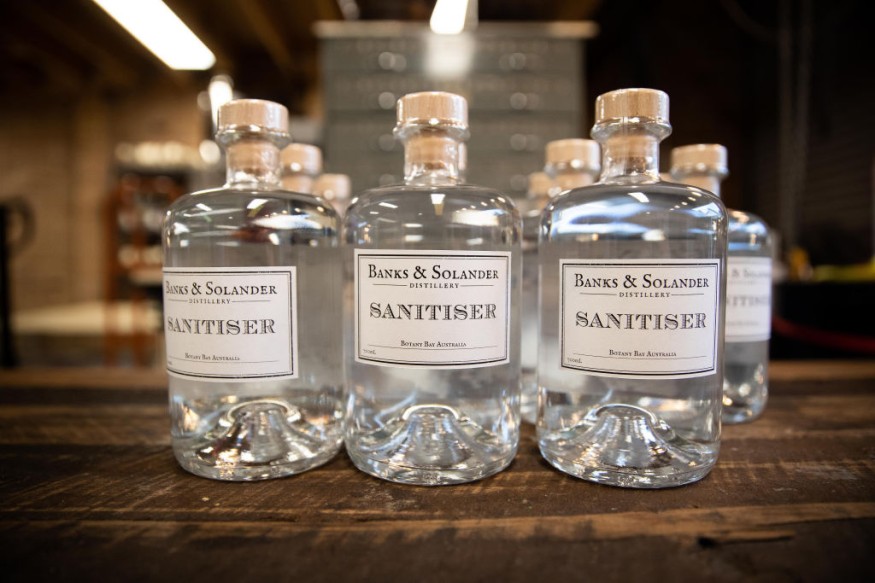Brigham Young University researchers' recent report shows that alcohol-free hand sanitizer is just as successful as alcohol-based goods in disinfecting COVID-19 virus surfaces.
The Centers for Disease Control and Prevention (CDC), on the other hand, said that although hand sanitizers are efficient as cleaning with soap and water, it has limitations as to what germs it could remove and what it could not.
Lead study author Benjamin Ogilvie reported that alcohol-free hand sanitizers have a range of benefits over their alcohol-based equivalents, which are often successful against common cold and flu viruses.
Ph.D. student Antonio Solis Leal, who performed studies in the report, added that having more options to disinfect hospitals and public places is critical.
It is logistically easy to turn to alcohol-free hand sanitizer as well, researchers said.
"People were already using it before 2020," BYU professor and co-author Brad Berges mentioned.
He pointed out that the non-alcohol-based hand sanitizers are just being thrown away because the government was saying, 'we don't know that these work,' due to the novelty of the virus and the unique lab conditions required to run tests on it.

Efficacy of Hand Sanitizers
Not all hand sanitizers are made equal, and there are guidelines from the CDC and other health experts to find a gel that will destroy the bulk of unwanted bacteria in the hands.
And if the safest way to protect yourself is to wash your hands with soft, soapy water for at least 20 seconds, hand sanitizer is often required in a pinch. According to the CDC website, a powerful hand sanitizer has approximately 60 percent and 95 percent alcohol content.
Alcohol can be classified as "ethanol," "isopropyl alcohol," or "ethyl alcohol." on hand sanitizer labels.
As long as a substance contains the required percentage of alcohol, it's perfect regardless of any ingredient.
"If you drop below 60% [alcohol content], the effectiveness drops very dramatically," Miryam Wahrman, a biology professor at William Paterson University and the author of "The Hand Book: Surviving in a Germ-Filled World," told Business Insider.
But be cautious about any hand sanitizers or sanitation items that claim they contain an additional disinfecting agent that is as good as alcohol, such as coconut oil.
Properly Use of Hand Sanitizer
If alcohol is not around to guarantee that our hands remain safe, hand sanitizers come into action, and can be conveniently taken anywhere and they are also sold in convenient sizes. For this purpose, specialists are encouraged to use a hand sanitizer to help avoid the spread of COVID-19. Sadly, there could be a number of persons who use it wrongly.
According to a recent report developed and released by CDC in the peer-reviewed journal Emerging Infectious Diseases, the usage of a hand sanitizer for at least 30 seconds is successful in inactivating SARS-CoV-2, which is the virus behind the COVID-19 pandemic. However, to that end, the research only used sanitizer formulas comprising either 80% ethanol or 75% isopropyl alcohol, which were licensed by the World Health Organisation (WHO).
As such, the analysis showed that the virus is found to be' efficiently inactivated' after 30 seconds of sanitizer use. Even though there are no symptoms present, COVID-19 can quickly spread across humans and so effective hand hygiene is crucial.
Safe Usage
The CDC said that you can add the gel to one of your hands and rub them together and use the hand sanitizer properly, meaning that you rub them all over your fingertips and hands .
In addition, make sure you wash your hands beforehand since hand sanitizers may not get rid of any form of bacteria and when your hands are clearly filthy or greasy, they will not be as successful. It would therefore not eliminate "harmful chemicals from hands such as pesticides and heavy metals," as per CDC.
As such, the safest approach to help avoid the transmission of germs is to wash your hands properly with soap and water, and make sure to spend at least 20 seconds lathering each portion of your hand with soap before rinsing it with water.
Check out more news and information on COVID-19 on Science Times.
© 2026 ScienceTimes.com All rights reserved. Do not reproduce without permission. The window to the world of Science Times.











